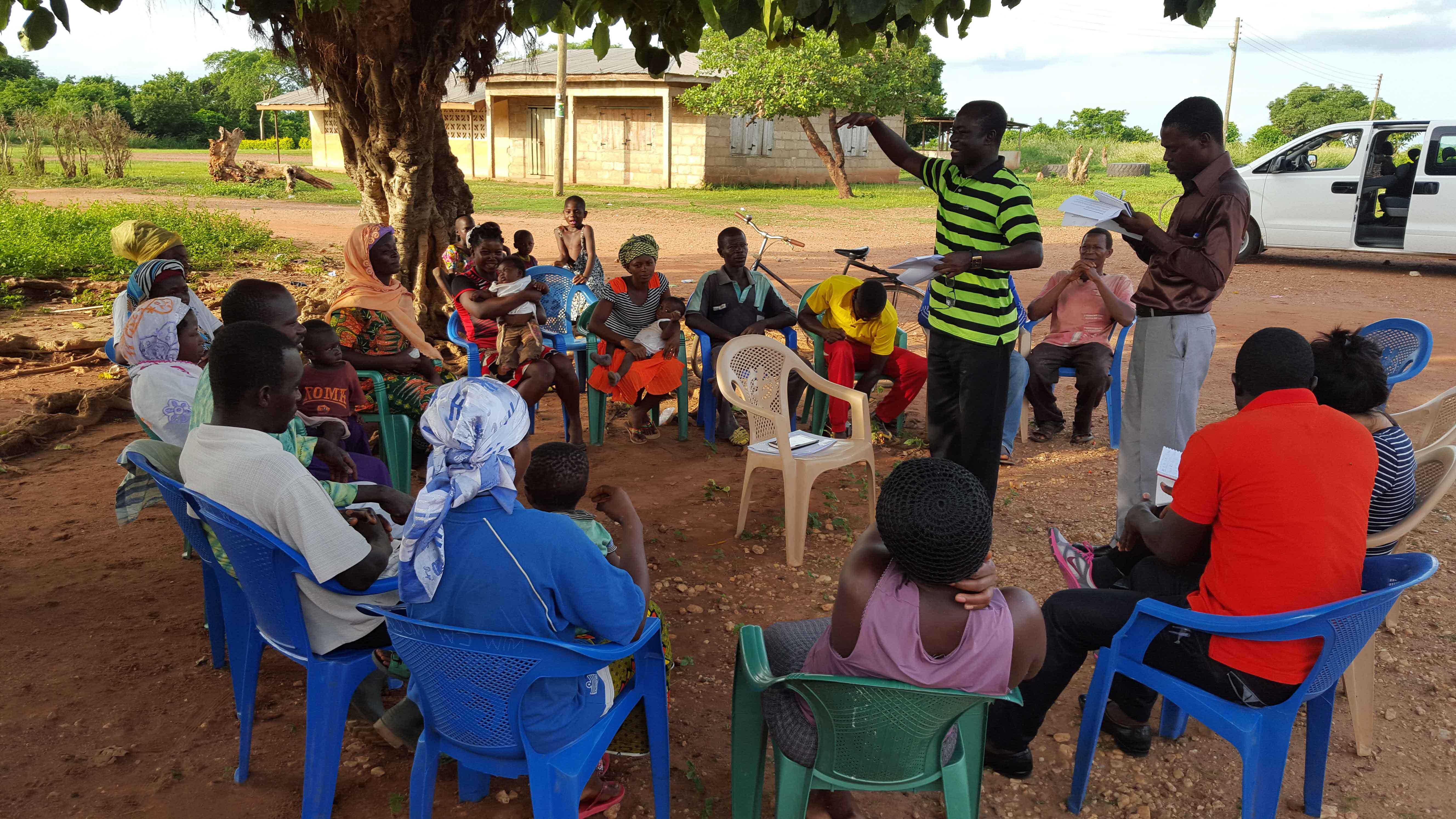
Bridging the Gap Between Formal and Informal Savings in Ghana
Across Africa, millions of people use and trust savings groups and other informal savings mechanisms (ISMs). They provide financial services that formal financial services providers (FSPs) often can’t. Savings at the Frontier (SatF) is a multi-year partnership between Mastercard Foundation and Oxford Policy Management to help FSPs find ways to link with ISMs, benefitting both service providers and savings group members.
In this blog, Steve Peachey of Oxford Policy Management explains how SatF has been demonstrating the commercial opportunity that links to informal savings mechanisms may offer Ghanaian financial services providers.
The first question that any financial services provider needs to ask when being encouraged to move into an untapped market by linking with informal savings mechanisms is, “What are you asking me to link up with?”
When the Savings at the Frontier team first went to Ghana in 2016 we quickly realized that NGO-facilitated group saving was a small part of the market. The ubiquitous, self-organized savings circle model known as Rotating Savings and Credit Association (ROSCA) was much more significant.
We also found two very interesting local variants of accumulating savings done collectively outside the home:
- Susu collection: this involves a trusted informal collector visiting clients to collect savings regularly (often daily), then returning the amounts collected at the end of a month, with a fee deducted for the work involved. This achieves the same effect as group saving since participants are motivated to keep saving by continuous social nudging (the collector visiting). As well, the value of savings is better preserved in the aggregate than would ever be possible individually.
- Affinity groups: these are collections of like-minded people accumulating money for a common purpose, not always saving because the end-result does not always directly benefit the individuals doing the saving. Examples would be a congregation saving for a new church roof or an alumnus association saving for new school facilities. The mechanism and its capacity for linkage are almost identical to other informal models of savings accumulation for purely domestic purposes.
Once we could describe ISMs in terms that resonated with Ghana’s formal financial service providers, we presented the case for people who use ISMs to be seen as a commercially viable extension of existing FSP client bases.
Survey evidence – particularly the 2014 World Bank: Global Financial Inclusion (Findex) data – suggests that at least one in three adults aged 15+ has some sort of account at a formal financial institution (FFI), and this proportion seems to be growing steadily. Adding in mobile money (part of the wider definition of FSPs that SatF can work with) pushes this ratio closer to 40 per cent and growth looks to be taking off even more rapidly.
Against a background of rapid growth, SatF needed to show that linkage with the kind of people who actively save with ISMs is a commercially viable expansion of FSPs’ existing customer base. Findex data can be used to map (a) who has an account (or ‘mobile-wallet’) with an FSP, (b) who saves informally, and (c) the overlaps between holders of FSP accounts/wallets and active savers using informal mechanisms.
If inactive holders of FSP accounts are excluded, the active user base for ISMs (22 per cent of adults) is almost three quarters of the size of the active customer base of FSPs (29 per cent of all adults). The same mapping also shows us how much saving with ISMs already overlaps with formal finance, with a quarter of active FSP customers also actively saving with ISMs:
Based on this we put out a call for concept notes that:
- provided descriptions of the various ISMs we were asking FSPs to consider linking with and that resonated with local experience;
- pointed to 1½ to 2 million adults who had no active relationship with an FSP but were saving on a very regular basis with ISMs (potentially a 50 per cent extension of the existing active FSP customer base); and
- showed that these people were evenly spread through the adult population, on average neither richer nor poorer than the whole population.
All of this triggered a lot of interest among FSPs, especially fast-growing challenger banks, and we had a strong response to the call for concept notes. SatF shortlisted seven concepts for discussion; at least four are already lined up for funding to help them research and pilot their way towards preparing evidence-based business plans for possible larger projects under the programme.
Stephen Peachey is the Technical Lead (institutions) on the Savings at the Frontier programme. A former central bank economist with additional commercial banking experience, he has nearly 25 years’ experience working with central banks and both state-owned and private commercial banks in transition economies and now increasingly in African and Asian developing countries.
Savings at the Frontier is a $17.6 million partnership between Oxford Policy Management and Mastercard Foundation. For more information, visit: http://www.opml.co.uk/projects/savings-frontier



